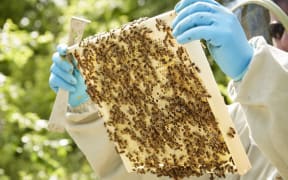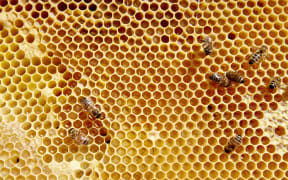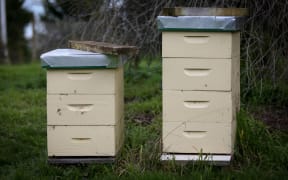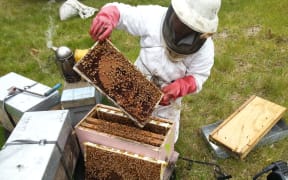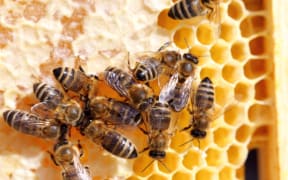An influx of newcomers to the industry is threatening bees' survival by concentrating tens of thousands of hives, which puts the bees too close together, the National Beekeepers Association says.
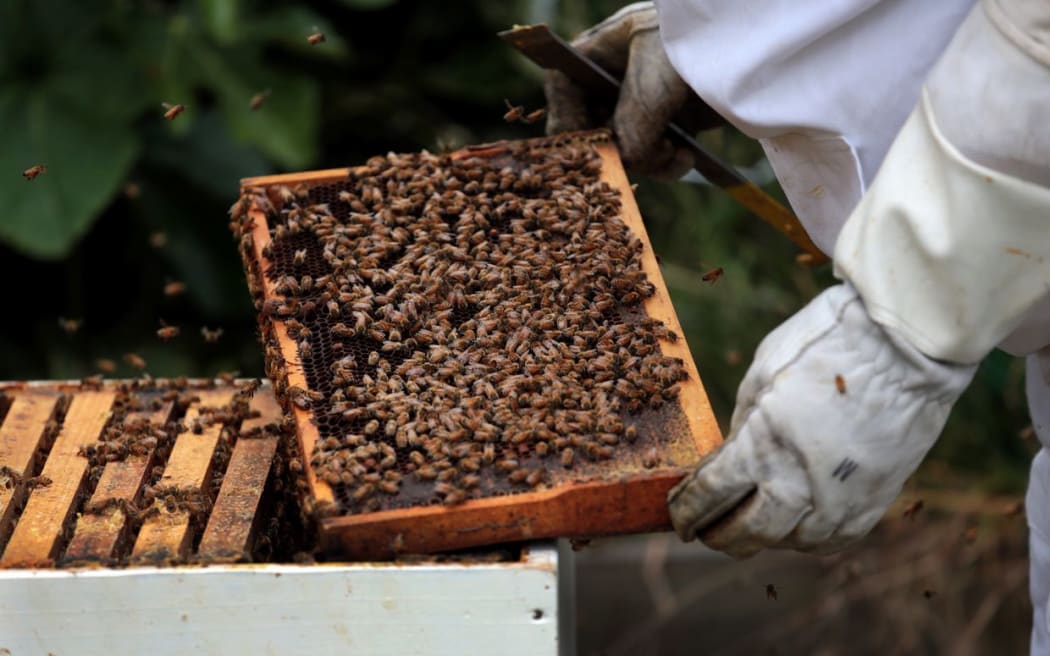
Photo: RNZ / Diego Opatowski
RNZ Rurals has been told beekeeping companies from Wellington and the Wairarapa are offering cash to farmers in Hawke's Bay to put hives on their farms, but are not putting them far enough from businesses such as Arataki and Kintail, which have been on the land for many years.
National Beekeepers Association Hawke's Bay branch president John Berry said there had been a huge surge in interest since the price of manuka honey soared.
Areas with manuka often did not have enough pollen for the bees over the cooler months, so people had to find new places to winter the bees, he said.
Mr Berry said this was threatening the health of beehives.
"You can only run so much stock in a given area and it's creating so many problems especially with people that are chasing manuka, they're taking up all the good spring sites.
"There are now so many hives - where I've had 16 hives, I've now got 100 hives across one fence and down the road a little bit there are another 100 hives.
"It's making it harder and harder to get those hives up to a suitable standard to do pollination."
Mr Berry said hives should be at least 2km apart, and the established beekeepers in Hawke's Bay respected this - in a so-called "gentlemen's agreement", because there was no law around where hives were placed.
But he said this had all gone out the window.
"We're not talking about just a few hundred hives, we're talking about tens of thousands of hives being dumped into areas and it's causing a shortage of nectar, a shortage of pollen.
"People are having to feed a lot more sugar, a lot more pollen substitute."
He said, as competition for sites increased, people were offering payment for them.
"There's been a lot of promises made about huge sums of money but, a lot of farmers I talk to, the money never eventuates.
"A lot of these guys come into an area and they have no history of the area or know the stocking rates, they look at the country and think 'oh I could run 500 hives here'."
'No question' overcrowding happening
Bruce Warsnop, a sheep and beef farmer on Makaroro Road near the Waipawa River, has had Arataki bees on his farm for over 60 years.
Mr Warsnop said he had noticed more and more hives in the district.
"We've been approached by three of four new apiarists in an area that traditionally only had two large commercial operators.
"We've got three sites spread over an area of 5km between sites, and across the river from one site within half a kilometre I see at least two other apiarists. It appears that they haven't got the rules set out as they should be.
"I'm aware of neighbours that have been paid in excess of $1000 and other people as well, as an incentive to let them put hives in places, but it means there is overcrowding in areas - there is no question of that."
The National Beekeepers Association said it wanted landowners to be aware of how many hives were on their land and how far apart they were.
RNZ has approached Wairarapa companies for comment, but none have responded yet.
